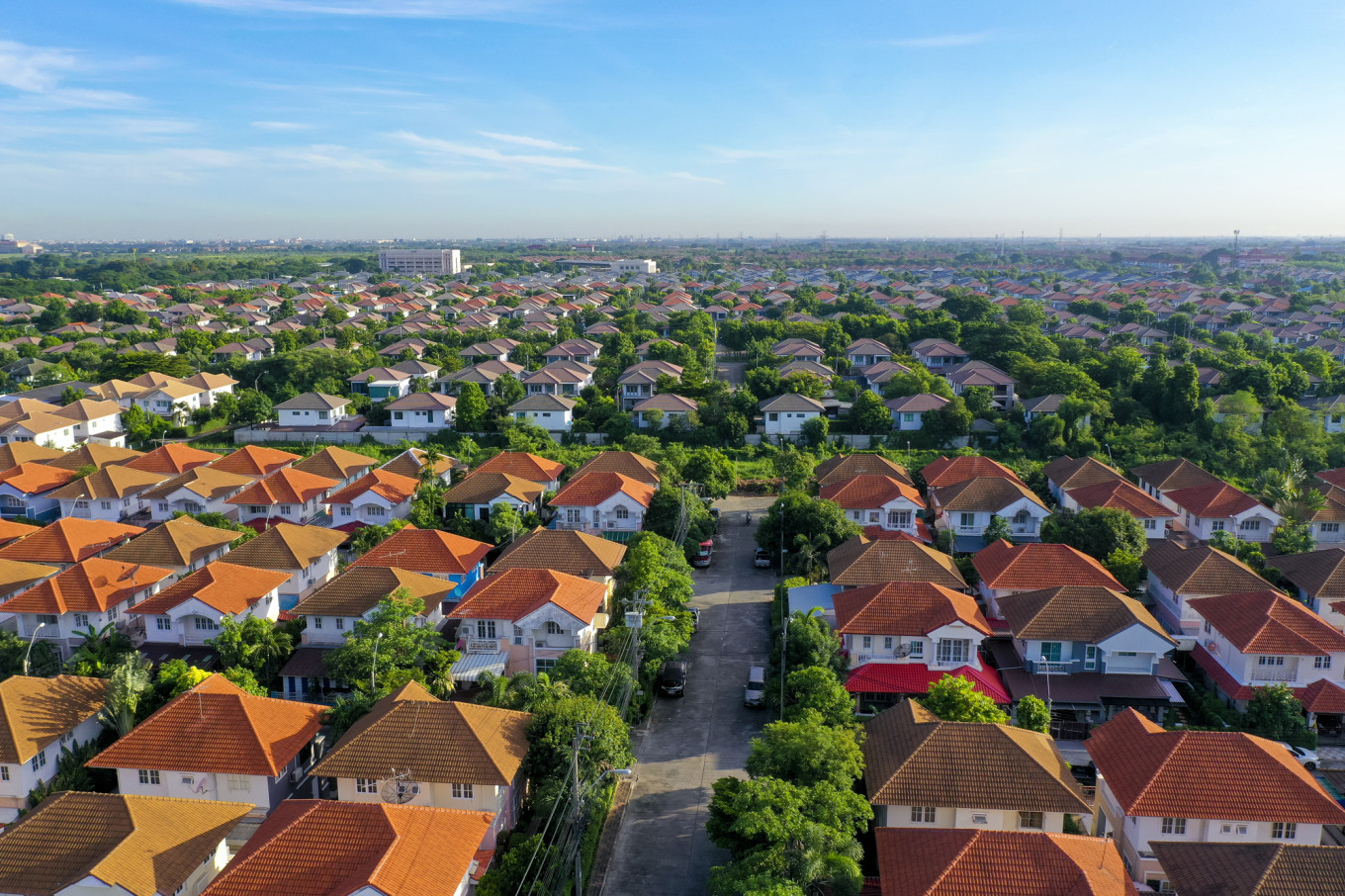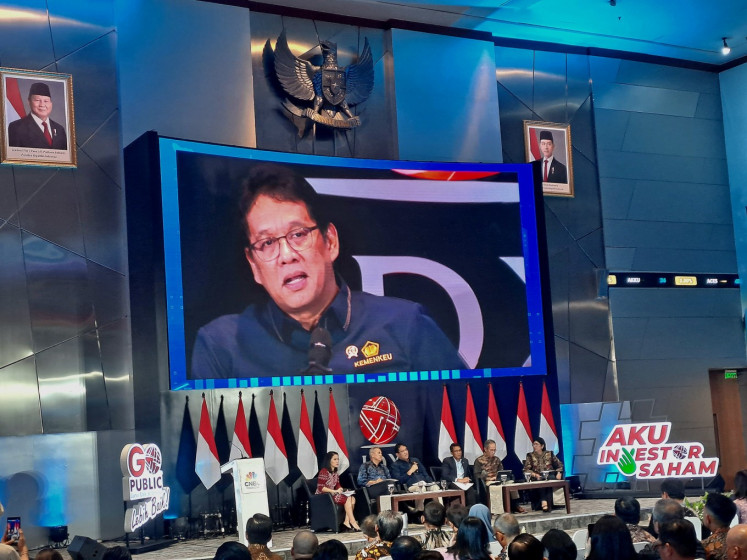Popular Reads
Top Results
Can't find what you're looking for?
View all search resultsPopular Reads
Top Results
Can't find what you're looking for?
View all search resultsThe right incentive to stimulate the national economy
Change text size
Gift Premium Articles
to Anyone
T
ax incentives can be categorized into four types, namely exemption from tax imposition, reduction of tax base, reduction of tax rate and tax deferral. In essence, a tax incentive policy is the government's effort to ensure that the economy continues to run and grow, as well as encouraging taxpayers to remain compliant both formally and materially.
Tax incentives can also have an impact on investors.
The first and most commonly granted incentive is exemption from tax imposition, meaning that certain taxpayers are not required to fulfill their obligations for a specified period. The second is the reduction of the tax base, usually granted in the form of expense deductions to calculate taxable income. The third is the reduction of tax rates, or decreasing the amount of tax that must be paid by the taxpayer. Lastly, tax deferral grants an extension of time for taxpayers to pay their taxes until a certain time.
On Feb. 4, the government issued Finance Minister Regulation (PMK) No. 13/2025 outlining the provision of value-added tax (VAT) incentives for the delivery of houses and apartments borne by the government for the 2025 fiscal year. The houses in question are buildings in the form of a residential house or row house, both multi-stored and non-terraced, including residential buildings that are partly used as shops or offices. Meanwhile, an apartment refers to a unit of an apartment building that functions as a place of residence.
The VAT borne by the government is the VAT incurred on the handover at the time of the signing of the sale and purchase deed made by the land deed becoming official, or the signing of the binding agreement for the full sale and purchase before a notary from Jan. 1 to Dec. 31, 2025, and a real handover of the right to use or control the ready-to-live house or apartment unit ready to live in as evidenced by the minutes of handover from Jan. 1 to Dec. 31, 2025. This aims to ensure that a real sale of land and transfer of rights has been undertaken.
This incentive is a facility provided by the government for the community, especially the middle class. This regulation is an extension of the VAT incentive policy, which was issued for the first time in 2023 and 2024. It can be said that this is a combined category incentive of the first, second and third types.
Economic activities in the housing sector are activities that encourage other sectors (for example, the steel industry, cement, mining as suppliers, architecture for support, and retail trade around housing that will develop after housing is established), which in turn will enhance the nation’s gross domestic product.
The impact will certainly be even greater if home loan interest rates are low, market sentiment is positive, and community income grows as expected. The provision of VAT incentives will also enhance the attractiveness for potential buyers, thus increasing public purchasing and stimulating growth in other economic sectors.
In general, this housing VAT incentive has several benefits, namely increasing people's purchasing power as houses become cheaper, sparking economic growth from rising sales of houses, supporting the government's "1 million homes" program, as well as encouraging property developers to accelerate the construction and handover of homes so that turnovers are higher.
As an illustration, sales of small and medium-sized houses decreased in 2024, so it is hoped that this incentive can increase purchases by the public in 2025 and beyond. It should also be noted that large-sized house sales increased in 2024, which can be interpreted as good purchasing power among middle to upper income earners. Thus, it is expected that this incentive will encourage the sale of all types of houses when taking into account that all VAT is borne by the government for houses under Rp 2 billion.
This ministerial regulation also stipulates that houses or apartments sold from Jan. 1 to June 30, 2025 will receive an incentive for an uncollected VAT of 100 percent on the selling price of up to Rp 2 billion for a maximum house price of Rp 5 billion. Houses or apartments sold from July 1 to Dec. 31, 2025, will receive an incentive for uncollected VAT of 50 percent on the selling price of up to Rp 2 billion for a house worth up to Rp 5 billion.
For example, if X purchases a house worth Rp 1.5 billion on Jan. 12, the entire VAT will be borne by the government. Meanwhile, if Y buys a house priced at Rp 3 billion on March 10, she must bear a VAT of 11 percent multiplied by only Rp 1 billion as opposed to Rp 3 billion, or a total of Rp 110 million. It should be noted that this regulation does not apply to houses or apartments that are exempt from VAT.
If we consider the two points mentioned above, the first half of 2025 brings a greater discount compared with the second. It can also be interpreted that the first half is more intended for developers who have ready-to-occupy houses, while the second half is meant for developers still in the construction phase and which are expected to complete by the second half of 2025, and that this arrangement is fair.
In order to maintain Indonesia's economic growth, the government provides an economic policy package for welfare in the form of VAT incentives for the handover of houses and apartments borne by the government.
In principle, the government aims to help people to own houses at lower prices and encourage economic activities, especially in the property sector. Thus, it can maintain the sustainability of Indonesia's economic growth through the stimulation of people's purchasing power in the housing sector.
Source: The Directorate General of Taxation (DGT)










